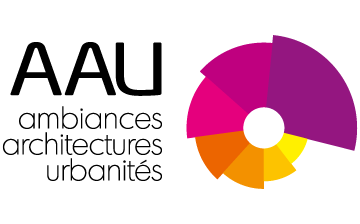Parcours urbains quotidiens. L’habitude dans la perception des ambiances
Daily urban routes. The habit in the perception of the ambiences
Hanène BEN SLAMA - Thèse de doctorat soutenue en 2007
Encadrement : J.P. Thibaud
FR
Cette thèse traite la question de la place de l’habitude dans la perception des ambiances des parcours quotidiens. Ainsi, une lecture sensible des parcours urbains quotidiens, permet de travailler sur les processus d’habituation en lien avec l’organisation spatiale elle-même ou bien encore par rapport à leur valeur esthétique et morphologique. Cette lecture sensible met en évidence des enjeux opérationnels relatifs aux processus de conception de l’espace construit. Le parcours urbain quotidien relève d’une situation ordinaire de référence constitutive de la formation de l’habitude chez le citadin. De ce point de vue, la notion de parcours urbains quotidien représente une entrée méthodologique pertinente pour aborder la question plus large de l’habitude.
Dans cette recherche nous mettons en avant une analyse comparative qui traite de l’influence de la dimension culturelle dans la manière de percevoir les ambiances d’un parcours urbain quotidien. Nous optons pour des parcours situés dans deux contextes socioculturels où les usages, pratiques et vécus de l’espace public, ne sont pas les mêmes. Il s’agit d’une recherche exploratoire, qui nous a permis de tester des méthodes permettant d’accéder aux processus d’habituation dans la perception des ambiances.
Après la réalisation et l’analyse des enquêtes effectuées à Tunis et Grenoble, nous avons structuré nos résultats sous trois formes, à savoir :
– Une typologie exploratoire des habitués : description des profils des habitués, de leur mode d’attention et de perception des ambiances de l’espace public habituel.
– L’étude des habitudes dans l’espace public, en traçant le lien qui existe entre la configuration spatiale et les pratiques quotidiennes.
– Et enfin le processus d’habituation aux parcours (les caractéristiques et le déroulement), qui se fait en boucle et en trois étapes : « acquisition, maturation et stabilisation ».
EN
This thesis deals with the issue of the habit in the perception of the ambiance of everyday course. Accordingly, a substantial and careful interpretation of daily urban course permits to go into the processes of habituation in association with the spatial organization or else in relation to their aesthetic and morphological values. This perceptible interpretation gives emphasis to the operational stake relative to processes of conception of the created space. The daily urban course arises from an ordinary situation with constituent reference of habit formation for citizen. Taking the issue along these lines, the notion of daily urban course represents a relevant methodological way in to handle the even broader issue of the habit.
In the research, we put forth a comparative analysis which considers the influence of the cultural dimension in the way of perceiving the ambiances of a daily urban course. We opt for courses situated between two socio-cultural contexts in which the usages, practices and real public life are not alike. This an exploratory research that makes it possible to test methods facilitating access to processes of habituation in the perception of ambiances.
After the carrying out and the analysis of inquiries made in Tunis and Grenoble, we have carefully arranged our findings and resumed them in three points:
– An exploratory typology of citizens accustomed to particular ambiances: Description of their profile, their modes of attention and their perception of ambiances of the customary public space.
– The study of habits in the public space along by underscoring the link that exists between the spatial configuration and the everyday practices.
– And ultimately, the process of familiarization to the courses (the characteristics and the procedure) which is done repetitively and in three stages: “acquisition, maturation and stabilisation”
